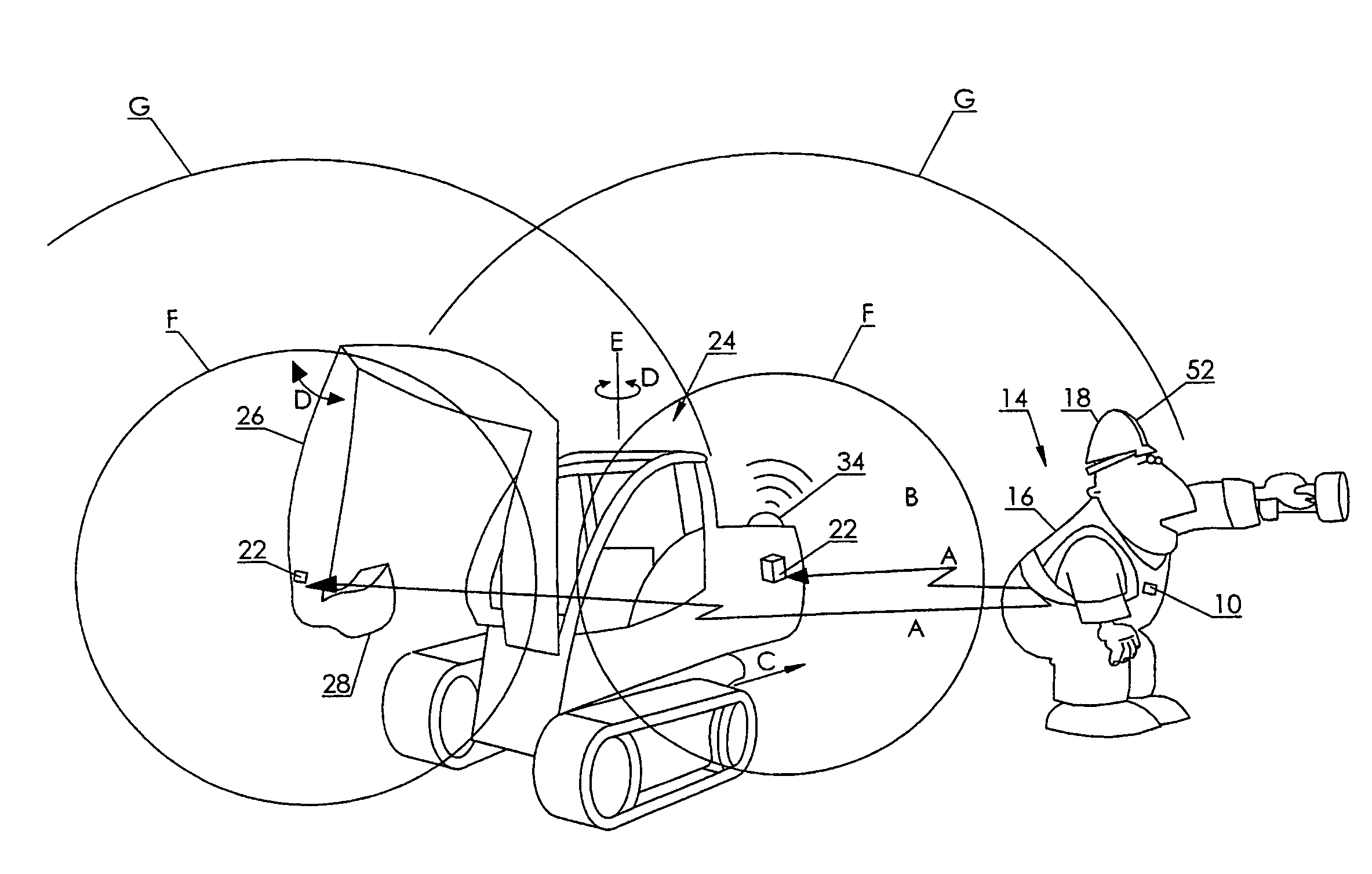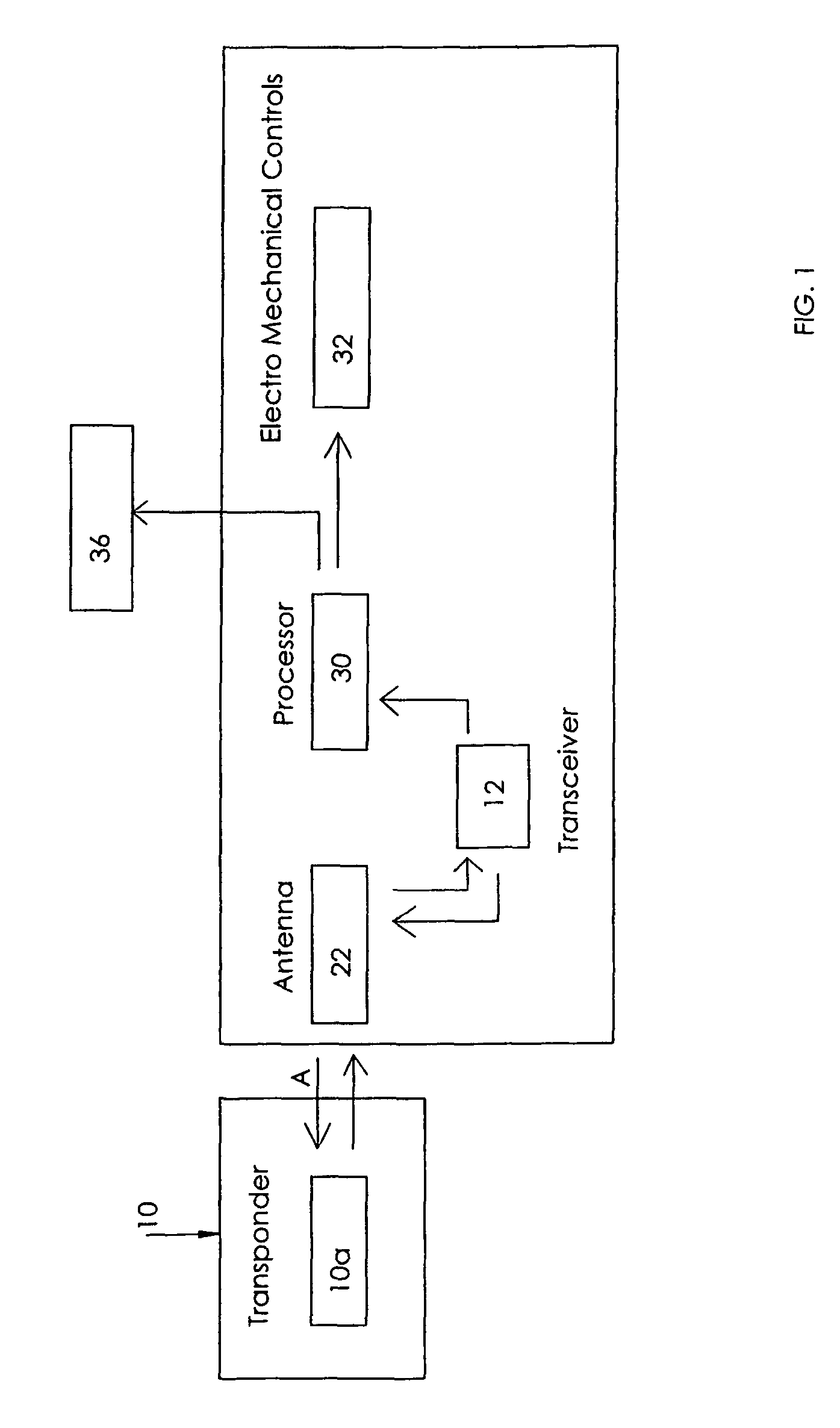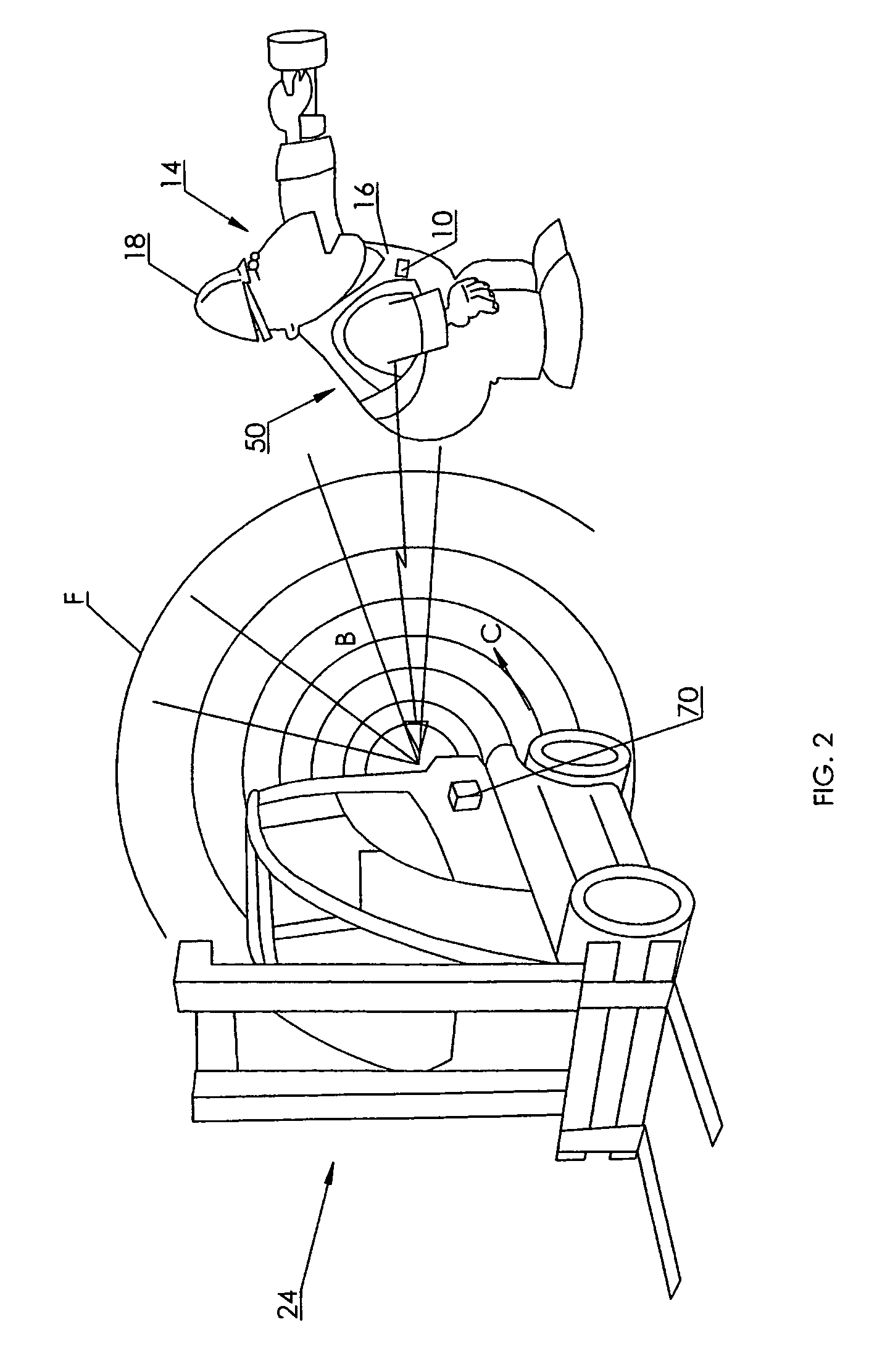Radio frequency identification based personnel safety system
a radio frequency identification and safety system technology, applied in the direction of safety devices for lifting equipment, electric signalling details, lifting devices, etc., can solve the problems of unsatisfactory previous attempts to reduce the frequency of workplace injuries caused by moving equipment, and the previous attempts to use rfid tags to enhance the safety of personnel working around moving equipment proved unsatisfactory
- Summary
- Abstract
- Description
- Claims
- Application Information
AI Technical Summary
Benefits of technology
Problems solved by technology
Method used
Image
Examples
Embodiment Construction
[0035]As seen in the accompanying Figures, wherein similar characters of reference denote corresponding parts in each view, the RFID based personnel safety system according to one aspect of the present invention includes an RFID tag 10 which contains a transponder 10a. The tag may for example be worn by a workman 14 either on an item of clothing 16, or on a hardhat 18 or the like.
[0036]Transponder 10a within tag 10 is in discontinuous radio frequency communication such as indicated by arrow line A with a transponder detection system 20. Transponder detection system 20 includes at least one antenna 22, which, in a preferred embodiment, may be one or more directional antennas, cooperating with transceiver 12.
[0037]In the case of use of a single antenna, it can be an omnidirectional antenna, unidirectional antenna, or, preferably, a directional antenna, such as for example a dipole antenna or yagi antenna taught in the prior art, for increased directionality and range.
[0038]Multiple an...
PUM
 Login to View More
Login to View More Abstract
Description
Claims
Application Information
 Login to View More
Login to View More - R&D
- Intellectual Property
- Life Sciences
- Materials
- Tech Scout
- Unparalleled Data Quality
- Higher Quality Content
- 60% Fewer Hallucinations
Browse by: Latest US Patents, China's latest patents, Technical Efficacy Thesaurus, Application Domain, Technology Topic, Popular Technical Reports.
© 2025 PatSnap. All rights reserved.Legal|Privacy policy|Modern Slavery Act Transparency Statement|Sitemap|About US| Contact US: help@patsnap.com



